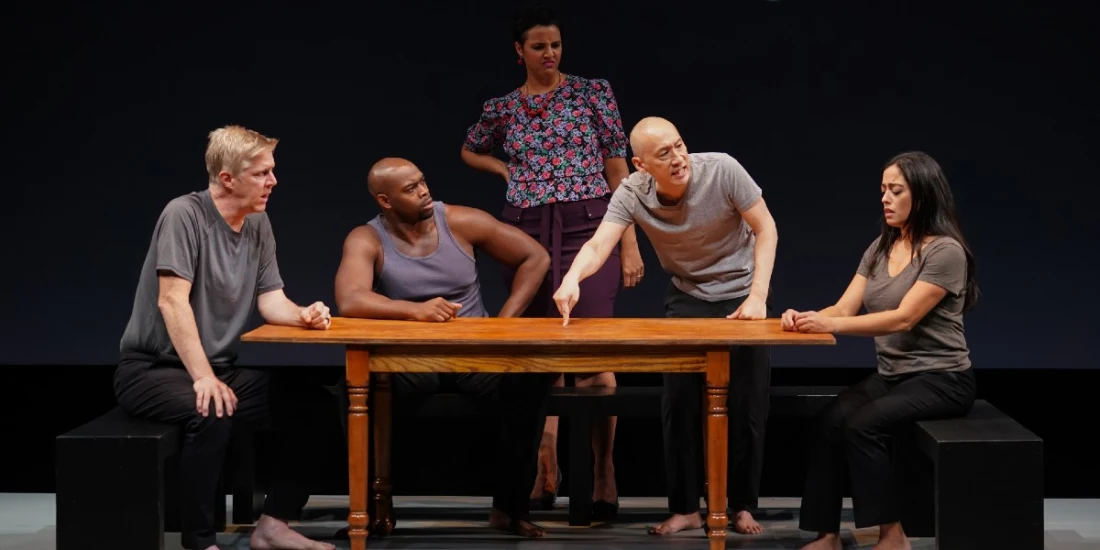‘Twilight: Los Angeles, 1992’ review — Anna Deavere Smith’s seminal work remains painfully resonant
Anna Deavere Smith is a singular artist. The transfiguration of journalistic interviews into documentary-style drama, a method Smith pioneered 30 years ago, redefined what it means to tell the truth on stage. Her solo performance style, which favors a kind of channeling over full characterization, encouraged an extension of imagination, essential to considering the questions of social justice her plays confront.
Smith's revision of Twilight: Los Angeles, 1992 as an ensemble piece for Signature Theatre Company both expands and contracts her original project. Under the direction of Taibi Magar, five actors (Elena Hurst, Karl Kenzler, Wesley T. Jones, Francis Jue, and Tiffany Rachelle Stewart) perform the subjects whose recollections Smith assembled, assiduously and with some urgency, into her original one-woman performance. Smith conducted some 320 interviews in all; Twilight first premiered in 1994, just two years after the L.A. riots.
Beneath projections that identify them by name and their relationship to events, characters tell us what they know, what they think, what they think they know. There's Angela King, Rodney King's aunt, who recalls private memories with her nephew and the moment she saw his body limp on the pavement through her television. There's Josie Morales, who witnessed the attack firsthand, and Ted Briseno, an officer accused in King's beating.
There are professors and thought leaders — including Cornel West and Maxine Waters — shop owners, victims, and hoity-toity Hollywood hot shots. To the extent that the breadth of Smith's interviews suggest comprehensiveness, cohesion is far from the aim. In their disparateness, Smith's subjects present a reflection like a shattered mirror, luminous but distorted, at times terrifying.
Splintering these interviewees into separate performances, primarily in the bodies of actors who match their identity markers, highlights the subjects' distance from each other in instructive ways. The tension of racial difference becomes visible and legible, much as audiences are used to seeing in other mediums. There is also something to be said for a broadening of opportunity to performers and the understanding that an actor of Asian descent, for example, brings to an Asian subject's point of view.
But there is a blood unity, and echo of shared humanity, to Smith's assemblage of diverse voices into solo performance that's lost in this revised ensemble version. In costumes by Linda Cho that are often more than merely suggestive, the actors appear more as characters than interview subjects, their performances as much in focus as the spoken words. In her absence from the stage, Smith's virtuosity is evident solely in the play's composition.
Its contents, of course, remain painfully resonant. Though the production was scheduled for early 2020, Twilight now includes at least one interview from this year, drawing a direct line from shaky home video of Rodney King's assault to the cellphone recording of George Floyd's murder that sparked the nation's largest-ever protest movement.
If learning from the past is possible, Twilight: Los Angeles, 1992 does essential, even lifesaving, work. There will always be power in its truth, however it is spoken.
Twilight: Los Angeles, 1992 is running through November 14 at Signature Theatre.
Photo credit: From left to right, Karl Kenzler, Wesley T. Jones, Tiffany Rachelle Stewart, Francis Jue, and Elena Hurst as Jurors of the Second Trial in Twilight: Los Angeles, 1992. (Photo by Joan Marcus)
Originally published on
